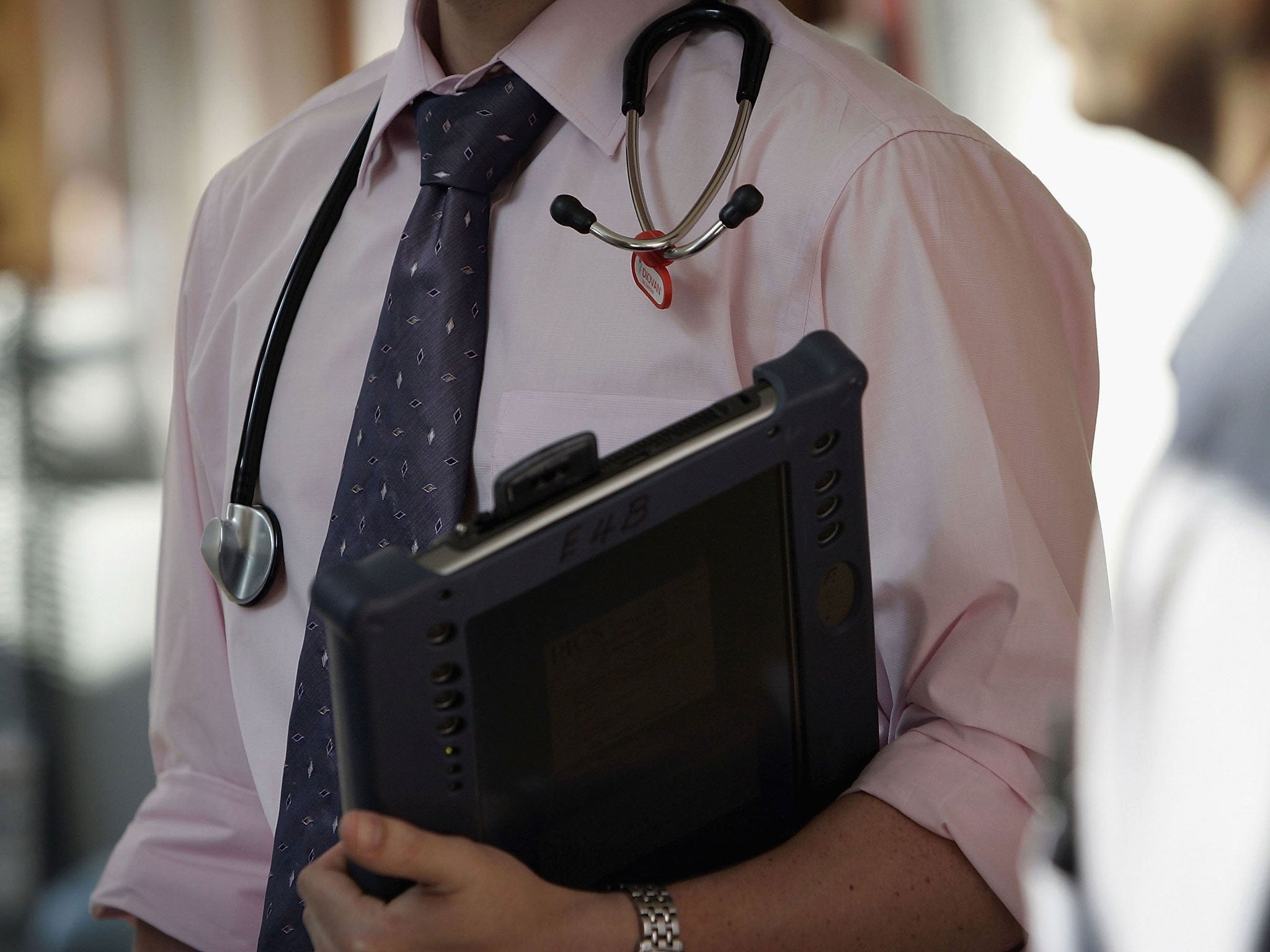Don't believe the headlines — as a doctor my job is not to deny care to those with suspected cancer
Apparently me and my colleagues are lazy, greedy, and now paid for our negligence. As a GP allow me to set the record straight

Your support helps us to tell the story
From reproductive rights to climate change to Big Tech, The Independent is on the ground when the story is developing. Whether it's investigating the financials of Elon Musk's pro-Trump PAC or producing our latest documentary, 'The A Word', which shines a light on the American women fighting for reproductive rights, we know how important it is to parse out the facts from the messaging.
At such a critical moment in US history, we need reporters on the ground. Your donation allows us to keep sending journalists to speak to both sides of the story.
The Independent is trusted by Americans across the entire political spectrum. And unlike many other quality news outlets, we choose not to lock Americans out of our reporting and analysis with paywalls. We believe quality journalism should be available to everyone, paid for by those who can afford it.
Your support makes all the difference.A day doesn't seem to go by without a little “GP bashing”. Lazy, workshy, money grabbing, I've heard it all. Naturally I'd refute that. Over breakfast this morning I was greeted with the headline: "GPs 'bribed' to send FEWER cancer patients for vital hospital tests"
Really? This is news to me. In a world where no news is good news, all news about health care seems to be bad at the moment. I'm sat surrounded by thousands of eager, keen, hard working GPs at the Royal College of GPs annual conference in Glasgow. I've heard stories of GPs putting in 14 hour days, changing lives and saving lives. But somehow this isn't enough.
Reports of pilot schemes and local initiatives hint at payments to minimise patient referrals. Yet today I've been encouraged to refer early with minimal suspicion of cancer by Harpal Kumar, Chief Executive of Cancer Research UK. Early referrals, with no thought given to overdiagnosis, and the harm that can be caused by too much testing. Britain can do better at treating cancer, but is this the best way to do it?
Headlines pointing to GPs taking money for refusing to diagnose and treat are utterly misleading. My job is to treat the patient in front of me. Cost is a concern, but less so compared to the safeguarding of the health of my patients. I am an advocate for the patient in front of me. Their health is my priority. I was trained to diagnose patients, treat disease, and comfort those who are suffering. I'm not trained to deny people care. So I won't.
Stories of “evil GPs” denying people care are wrong. A far from scientific straw poll of colleagues has found no support for receiving payments to minimise cancer referrals. Not one. Modern medicine is governed by guidelines, and as doctors we are strongly encouraged to follow them. We have robust guidelines in cancer referrals. Mid-fifties with new heartburn? Chances are you'll get an endoscopy within two weeks. Strange mole? The dermatologists will see you in a fortnight. This is what I have to do, so I do it. My job is not to deny care to those with suspected cancer.
Many people are unaware that GPs are technically private contractors. We're paid in a variety of strange, increasingly Byzantine ways. A core contract with some money, the Quality Outcomes Framework brings a little more. Enhanced services, little mini-contracts that bring in money for smoking cessation clinics or contraceptive services. Practices are struggling to make ends meet, with spiralling costs and falling incomes. Some practices might be tempted by incentive schemes to change their clinical practice, but I've not met one GP that agrees with this.
The piecemeal payment of GPs, scrabbling for every crumb of income can create some perverse incentives. Having frail elderly people take medications for cholesterol might seem excessive to some, but stopping medications might lead to a fall in income, which in turn may affect services. Many of us are uncomfortable with this, and many GPs are clamouring for change. The Scottish Health Minister, Shona Robison has already promised the removal of one set of incentives, the Quality Outcomes Framework. The “QOF” as we call it has noble intentions, but can result in people receiving almost too much care.
My duty is a doctor is to put the patient first. To diagnose, treat, heal and above all end suffering. Paying me to NOT do that is out of the question.
Matthew Picaver is a GP with a background in Forensic Science
Join our commenting forum
Join thought-provoking conversations, follow other Independent readers and see their replies
Comments